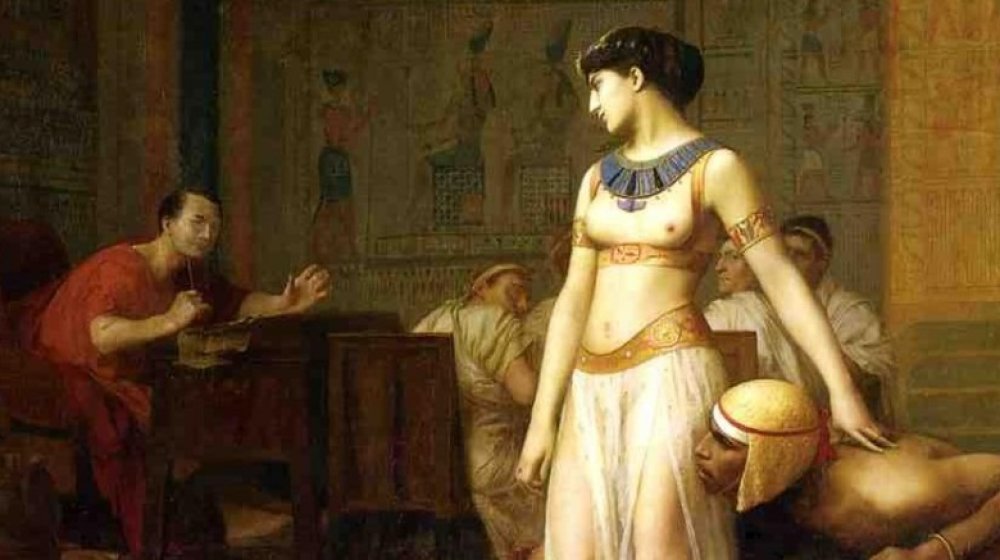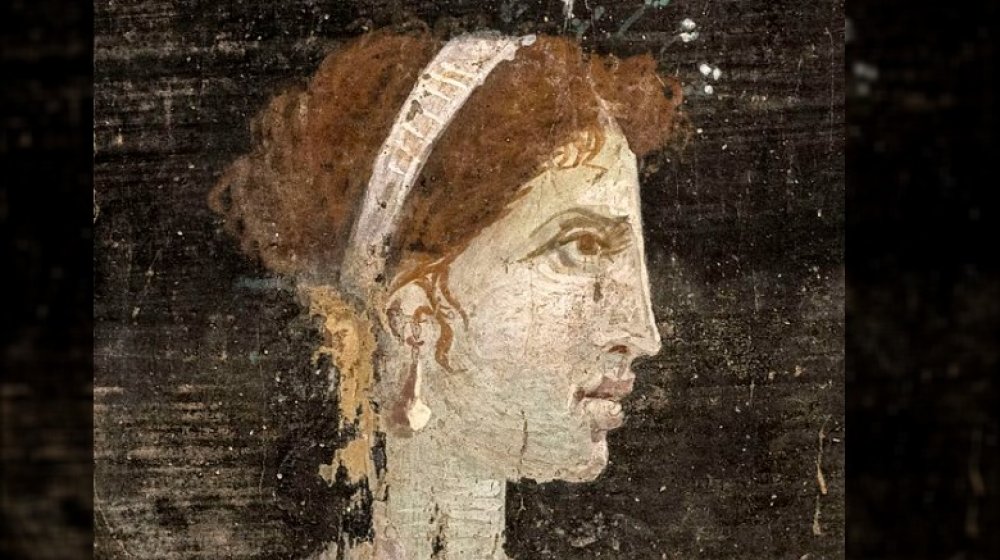Myths About Cleopatra You Can Stop Believing
Cleopatra: the woman of the golden barge, drifting down the Nile. Surprise gift of self to Julius Caesar, unrolled from a carpet (or emerging from a sack; your choice). Having her asp handed to her by a servant (so she could commit suicide, of course). Portrayed on the screen by the likes of Claudette Colbert (1934), Vivian Leigh (1945), and Elizabeth Taylor (1963) — none of whom were Egyptian. Funny thing: Neither was Cleopatra. As History helpfully informs us, the Queen of Egypt was actually descended from the Greeks who had ruled Egypt since Alexander the Great's death, when his empire was carved up and Ptolemy was awarded Egypt. To her credit, Cleopatra learned to speak Egyptian — none of the other Greek-descended rulers had — which earned her points with the people. It was also just one of perhaps as many as a dozen languages she mastered.
Her legend includes that story of the rug/sack entrance: Julius Caesar was in Alexandria, pursuing a military rival, according to Smithsonian, and Cleopatra was at odds with her husband (who was also her brother). She wanted Caesar's help, and he gave it, and (skipping ahead) she regained the throne. The myth says she landed at Caesar's feet and he was wowed by her beauty (and later impregnated her; that last part's true). Contemporary accounts of Cleopatra describe her as somewhat plain, and portraiture backs that up. The ancient historian Plutarch, damning by faint praise, described her looks as "not altogether incomparable."
"Irresistible charm"
But also added the key to understanding Cleopatra: "irresistible charm," as The Vintage News says. History takes it a step further, mentioning her "mellifluous speaking voice." Smithsonian quotes Plutarch further: "The character that attended all she said or did was something bewitching." Others suggest that she had herself portrayed as with, perhaps, more masculine facial features (whatever those might be) in an effort to exert a greater show of authority and power.
When everything went south — her Roman lover, Marc Antony, had lost his military power-grab and killed himself; she was facing humiliation as a shackled trophy in a Roman victory parade — she committed suicide. Remember that Cleopatra was the benefactor of her own propaganda machine — she liked to associate herself with the goddess Aphrodite — but also fell victim to Roman wordsmiths, who were less than kind to her record. Supposedly she had a servant bring her a poisonous reptile of some sort — an asp, or perhaps an Egyptian cobra — and allowed the beastie to bite and kill her. But while it's a dramatic scene in a dramatic life, there's no historical evidence to back it up. She might simply have committed suicide by poison; she was known to carry poisoned hair combs. You know, just in case.
Unbelievably charming; highly intelligent; politically astute: That was the real Cleopatra. No myth there.

